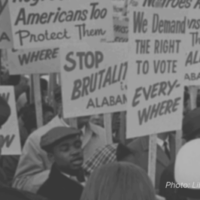Ending 80 Years of Exclusion and Discrimination in State Labor Law
New York, NY—The National Employment Law Project applauds New York State for passing the Farmworkers Fair Labor Practices Act, which redresses longstanding discrimination against the workers who plant, harvest, and produce our most basic sustenance. By closing a racially motivated loophole in New York’s labor laws, farmworkers will at last be paid overtime wages, have safe housing, and be protected when forming a union.
“While the farming workforce may have shifted from Black workers to Latinx workers, the Jim Crow practice of denying them basic protections under the law has continued for too long,” said Christine Owens, NELP executive director. “Many farmworkers report working 60 to 80 hours a week doing grueling physical labor, and they deserve fair compensation for the long hours and the toll taken on their bodies, spirits, and family life. By establishing a floor for overtime pay and a wage board to explore the appropriate fair work week for these workers, New York is taking the first step in making the state’s agricultural system truly sustainable. We urge the wage board to act swiftly to adopt a plan for further lowering the overtime threshold so that farmworkers finally have the same overtime protections that all other blue-collar workers enjoy.”
“The image of the migratory farmworker is out of date,” said M. Patricia Smith, NELP senior counsel and former New York State labor commissioner. “Most farmworkers are settling in New York State with their families and children, contributing to the local economy, and working year-round in our state’s dairies and farms. Many report long tenures with their current employers. These are our neighbors and fellow community members, and they deserve the same basic rights and protections at work that the rest of us take for granted.”
NELP commends the coalition of brave farmworkers and their advocates—including Rural Migrant Ministries, the New York State AFL-CIO, the New York Civil Liberties Union, the Hispanic Federation, and the Workers’ Center of Central New York—who led the campaign and shined a light on the difficult conditions under which farmworkers labor, as well as Senate Majority Leader Andrea Stewart-Cousins, Assembly Speaker Carl Heastie, and Governor Andrew Cuomo for brokering the deal to make it happen.
When lawmakers in Congress enacted the National Labor Relations Act in the 1930s, they made an unjust compromise with Southern legislators, excluding from protection those jobs done mostly by Black workers, including farm work. New York legislators replicated these exclusions in state labor laws enacted soon afterwards. For 80 years thereafter, even as New York State redressed the historical exclusion of building service workers, caregivers, and retail workers, farmworkers continued to labor in one of the most dangerous occupations without the most basic labor protections, such as the right to overtime pay, the right to a day of rest, and the right to organize and form a union if they so choose.
The passage of the Farmworkers Fair Labor Practices Act finally brings the era of discriminatory labor laws in New York’s fields and dairies to an end.
###



